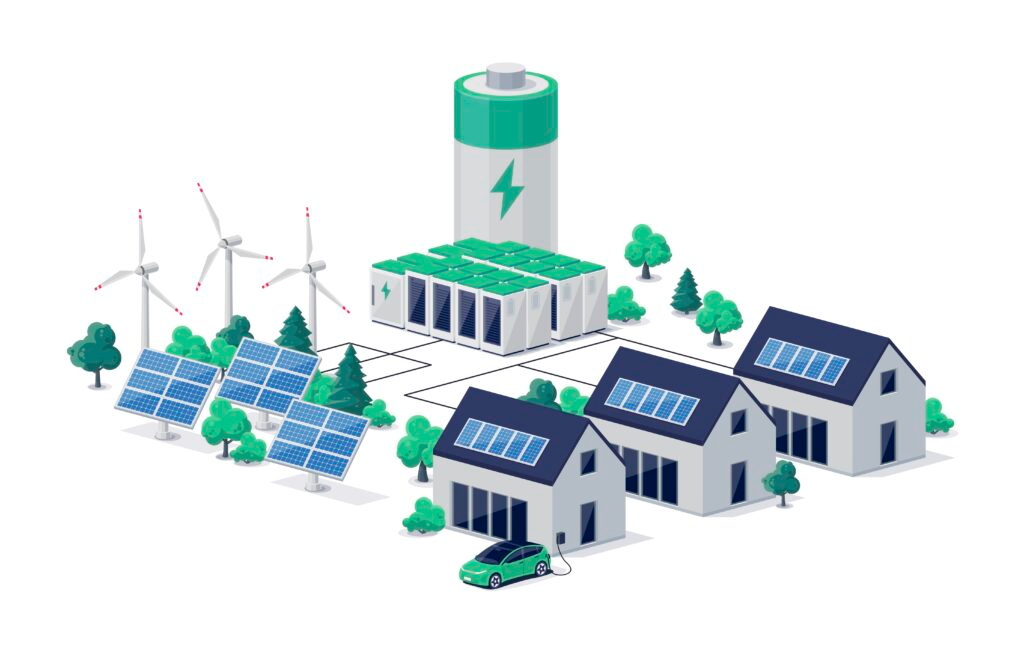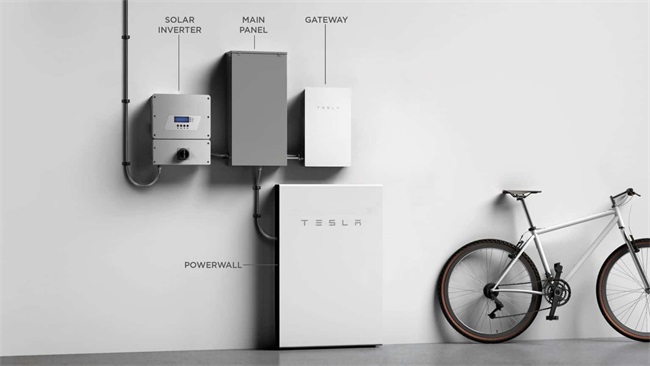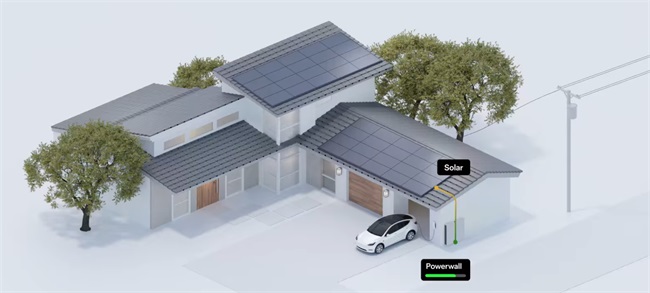Residential Energy Storage Market Report : Tesla Powerwall Market Position and Technological Development

※ Residential battery energy storage
In recent years, the global demand for sustainable energy and green technologies has been growing, especially in the residential sector, where energy storage systems (Residential Energy Storage, RES) have become an essential component in driving this transition. With the widespread adoption of renewable energy sources such as solar and wind power in households, residential energy storage solutions have gradually become key technologies for enhancing energy independence, reducing energy costs, and ensuring reliable power supply.
In this context, Tesla, as a leading technology company, has become a significant player in the residential energy storage market through its technological innovations in energy storage. Its Powerwall product line not only offers significant technical advantages but also holds a prominent position in terms of market promotion and consumer recognition.
This report by EnergyX will analyze the residential energy storage market in 2024, with a focus on Tesla's market position, technological strengths, development trends, and future challenges in this field. If you have any further thoughts or would like to engage in a deeper discussion, please feel free to contact us via email for ma ore insightful exchange.
Market Development Overview
According to reports from market research agencies, the global residential energy storage market has experienced rapid growth in recent years. With the increasing adoption of electric vehicles (EVs) and solar power systems, the demand for residential energy storage has seen a significant upward trend. It is expected that by 2030, the global residential energy storage market will exceed $50 billion, with North America, Europe, and the Asia-Pacific region being the key markets. Led by China and the United States, these two countries have seen rapid growth in renewable energy capacity, driving an increasing demand for batteries that can store surplus solar or wind energy for later use.
So what are the factors that promote the development of the residential energy storage market?
First, all countries have energy autonomy and security needs: as climate change intensifies and extreme weather events occur frequently, many families want to ensure the stability of power supply through energy storage systems.
Second, the growth of renewable energy: the popularity of solar and wind energy in the residential sector is driving the demand for energy storage systems, because the production of these energy sources is often unstable, and energy storage technology is able to balance supply and demand.
In addition to power price fluctuations: power prices in many areas fluctuate greatly, and home users can store electricity at low prices and use it at high prices, reducing power costs.
Finally, government policy support is also a very important factor. Government support for green energy technologies worldwide, especially in the United States, Europe and China, has contributed to the rapid growth of the residential energy storage market. The California Public Utilities Commission approved a new rooftop solar policy that will encourage homeowners to add batteries to rooftop arrays.
Tesla's position in the residential energy storage market
Tesla has held a leading position in the residential energy storage market since launching the Powerwall in 2015. Powerwall is a highly efficient domestic battery energy storage product that can be used in conjunction with a home's solar system to store electricity generated by solar panels to provide a continuous power supply to the home.

Tesla Powerwall Product Advantages
High Energy Density: Tesla's Powerwall utilizes advanced lithium battery technology, offering a high energy density that allows for a large storage capacity in a compact space.
Smart Management: Tesla's energy storage system is optimized through proprietary software and smart algorithms. Users can monitor battery status in real time and track energy storage levels via a mobile app.
Integrated System: Tesla not only provides battery storage devices but also integrates seamlessly with solar systems, offering a comprehensive energy solution. This allows users to easily achieve energy self-sufficiency for their homes.
Reliability and Safety: Tesla places a strong emphasis on safety in its design, ensuring that its battery systems are equipped with multiple safety protections to ensure stable operation in various environments.

Market Share and Competitive Landscape
Tesla holds a leading position in the global residential energy storage market, especially in North America, where its Powerwall products often capture more than 30% of the market share. Furthermore, Tesla has driven the adoption of storage products through the integration of its electric vehicle sales network and energy products.
Despite Tesla's large market share, it faces fierce competition from other energy storage manufacturers. Key competitors include:
Sonnen (Germany): Known for its SonnenBatterie series, which holds a strong position in the European market, particularly for optimizing home energy efficiency and smart management.
LG Chem (South Korea): As a global leader in battery manufacturing, LG Chem provides a range of storage solutions for both residential and commercial markets.
Enphase (USA): Famous for its efficient microinverters, Enphase offers energy storage systems that work seamlessly with solar panels and are highly integrated with smart technologies.
Nevertheless, Tesla continues to maintain a significant market position due to its strong brand, global sales network, and technological innovations.
Technological Development Trends and Innovations
Intelligent and Connected Systems
With the development of the Internet of Things (IoT) technology, intelligent energy management systems have become a key trend in residential energy storage products. Tesla's Powerwall already integrates seamlessly with home solar systems and allows real-time monitoring and management via a mobile app. In the future, more storage systems are expected to integrate artificial intelligence (AI) and big data analytics, offering more personalized and precise energy management services.
Emerging Energy Storage Technologies
In addition to traditional lithium batteries, solid-state batteries and other next-generation storage technologies are becoming hot research and development topics. Solid-state batteries, with their higher energy density and better safety features, are expected to become an important part of residential energy storage systems in the coming years.
However, despite the gradual reduction in the cost of energy storage technologies, the high price of storage systems remains a significant barrier for consumers. In the future, with continued technological advancements and economies of scale in production, the price of residential energy storage systems is expected to decrease further, driving wider adoption.
Moreover, due to varying levels of government policy support for renewable energy and storage systems in different countries, factors like subsidies and tax incentives may affect the pace of market growth. Tesla and other manufacturers will need to closely monitor policy changes across regions and adjust their market strategies accordingly. At the same time, in today's era of green development, companies should take on the responsibility of promoting global environmental sustainability. This includes advancing battery recycling technologies and pursuing a path where green development and technological innovation go hand-in-hand.
Conclusion
Overall, in 2024, the residential energy storage market will continue to show rapid growth. Tesla, with its technological advantages and market positioning, occupies a significant position in the global market. As technology continues to progress and consumer demand for energy independence increases, the outlook for the residential energy storage market will be even more promising.
As a provider of customized lithium battery storage solutions (EnergyX), we offer a wide range of customized lithium battery solutions to meet your one-stop energy needs. However, the market competition is intensifying, and further innovations are needed to reduce costs, improve product intelligence, and advance battery recycling technologies in order to maintain market leadership. In the future, the residential energy storage market will play a crucial role in the transition to green energy, and technological breakthroughs will have a profound impact on global household energy usage patterns.

